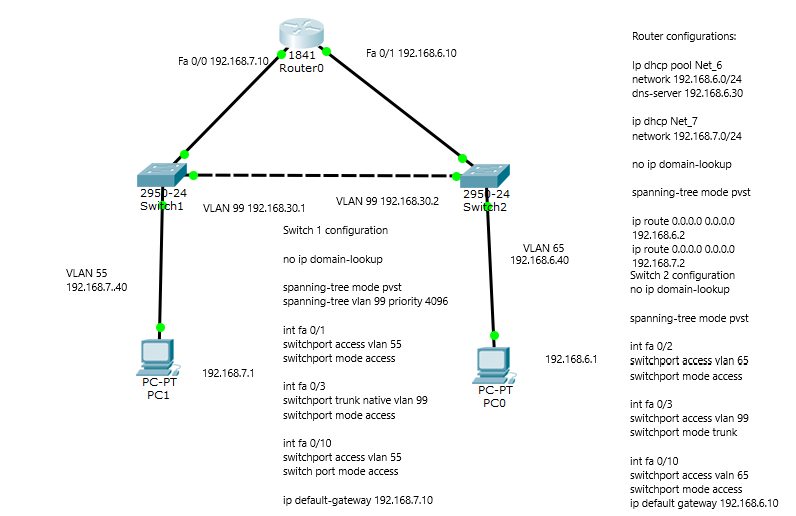So my problem starts with a PC that has IP address 192.168.7.1 that cannot ping a PC with IP address 192.168.6.1. Both get their IP addresses from a Cisco router via DHCP. The router has IP address 192.168.7.10 on Fa0/0 and 192.168.6.10 on Fa0/1.
The first switch has a VLAN interface 65 with IP address 192.168.7.40 while the second switch has a VLAN interface 55 with IP address 192.168.6.40.
The first switch has another VLAN interface (99) with IP address 192.168.30.1. This VLAN is trunked to the second switch (192.168.30.2). The router has the spanning tree protocol up.
So is it because of VLAN 99 IP address that the PCs cannot ping each other?


{}). Be sure to include the full configurations of all the network devices.